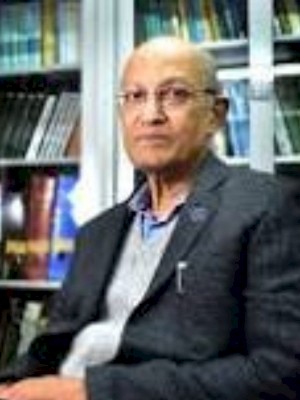Room 101, School of Arts and Sciences
Central Campus
Ahmedabad University

Mammalian cancers have been reported to overexpress different heat shock proteins (Hsps), the major components of cellular stress response, as a strategy to overcome and survive diverse stresses that cancer cells face. However, roles of Hsps in the initiation and early establishment of cancers are not well known. The remarkable MARCM (Mosaic Analysis with a Repressible Cell Marker) and other genetic approaches in the fly model permit induction of a carcinogenic clone of known genetic constitution at defined time point in the desired target cell type. This permits a follow up of the induced tumorigenic clones from beginning to their transformation stage and beyond. Using the MARCM approach to induce epithelial tumorigenic clones in Drosophila that have lost the Lgl, an apico-basal polarity protein, we examined temporal and spatial expression and roles of the major heat shock proteins during different growth phases of lgl- and Yorkie over-expressing tumorous clones (Singh et al, 2022, Cell Stress & Chaperones, https://doi.org/10.1007/s12192-022-01283-z and other unpublished data). Elevated expression of the constitutively expressed Hsp83, Hsc70 (heat shock cognate), Hsp60 and Hsp27 is seen in all cells of tumorigenic clones from the early stages till their transformation. Unlike the other Hsps, the stress-inducible Hsp70 expression occurs late when the established tumorous clones begin to show high F-actin aggregation, and, surprisingly is limited to only a few cells, The elevated expression of different Hsps in lgl- clones that over-express Yorkie, does not require the heat shock factor (HSF), the master regulator of Hsps. Effects of down- or up-regulation of different Hsps in the lgl- tumorous clones varies in relation to the specific Hsp and the other genetic lesions in the lgl- clones. The lgl- cells, which fail to develop tumorous clones in background of wild type surrounding cells, successfully develop tumours if the surrounding cells are compromised for the developmentally active and stress-inducible hsrω lncRNA expression. Interestingly, cell-autonomous gain or loss of hsrω expression in lgl mutant clones, too permits lgl- clonal cells to develop tumours. These findings have implications for human cancers and their therapy.
Professor S C Lakhotia, currently a lifetime Distinguished Professor at Zoology Department of Banaras Hindu University, obtained his PhD from University of Calcutta in 1970 for work on dosage compensation in Drosophila. He has been actively involved in teaching and research since 1971. His research has largely used the Drosophila model to study diverse areas like developmental gene expression and regulation, replication in chromosomes, cell stress response, long non-coding RNAs, neurodegeneration, tumor biology, Ayurvedic biology etc. In addition, he has been proactively involved in discussions on quality of higher education, research and publication ethics. Leading by example, Professor Lakhotia is a strong votary of improving the quality of research journals published in India.
He was Editor-in-Chief of the Proceedings of the Indian National Science Academy and had been member of the editorial boards of Current Science, Journal of Biosciences, Cell Stress & Chaperones. RNA Biology and Annals of Neurosciences. An elected fellow of all the three science academies in India, and a Senior Fellow of the Cell Stress Society International (USA), he is recipient of several awards like INSA Young Scientist Medal, SS Bhatnagar Prize, UGC Career award, UGC National Lecturer, UGC JC Bose Medal, INSA Aryabhata Medal, SERB Distinguished Fellowship etc.